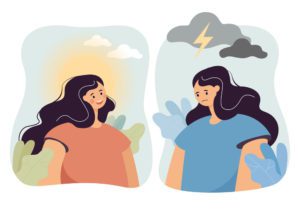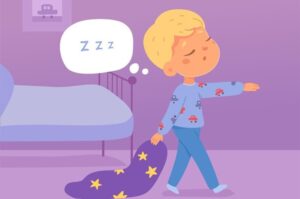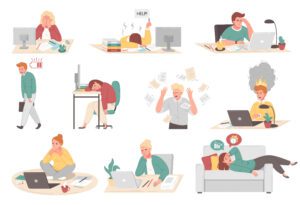Why That Chewing Noise Drives You Crazy
This article has been researched and written by Dalea Alawar. AI has not been used in producing this article.
It’s called misophonia, which literally means “hatred of sound”! It happens when someone experiences a strong emotional reaction like anger, anxiety, or disgust to:
- Mouth sounds (chewing, slurping, lip smacking, heavy breathing)
- Throat sounds (sniffing, coughing)
- Repetitive sounds (clock ticking, foot tapping, pen clicking)
So, why does this happen? Science doesn’t have all the answers yet, but there are two main hypotheses that help explain what’s going on in the brain: Brain scans of people with misophonia show extra-strong connections between the part of the brain that hears sound ( auditory cortex) and the part that feels emotions like disgust and anger (anterior insular cortex).
Translation: When someone with misophonia hears r a trigger sound, their brain fast-tracks it straight to the emotional response center – skipping the logic and reasoning parts altogether. That’s why you might find yourself snapping at your partner for chewing too loudly before you even realize you’re annoyed.
Overall, misophonia is a reaction that truly does feel outside of the control of he person experiencing it. In both theories discussed, what is clear is that the “rational” part of the brain gets bypassed entirely when you hear a triggering sound. Your brain literally does not pause to think about how to react. All of a sudden, you hear yourself snapping at your partner for eating their popcorn too loudly, as if you didn’t choose to snap.
The good news is that you can do something about this. Once you recognize your trigger sounds, you can prepare for them and decide how you want to respond – before your brain hijacks the situation. Another hypothesis is that misophonia is the result of a conditioned response. Just like a song can remind you of a breakup, misophonia may develop when the brain starts to associate certain sounds with past stress, tension, or negative experiences. For example, if you were scolded as a child for tapping your foot, your brain may now associate foot-tapping = bad feeling. So even years later, the sound alone can bring on that same stress – without you even realizing why.
So, instead of yelling at your popcom-munching partner, you might try a little humor: “Hey babe, can we put your snack on mute?” You might still be annoyed – but you’ll be in charge of your response.
How Psychoeducational Assessments Help Shape Better Learning Plans in School
No two children are the same. Every child brings a unique mix of strengths, challenges, and ways of …
Can Relationship Counseling Work for Toxic Relationships?
Relationships can be complicated, emotional, and at times, painful. While every couple experiences ups and downs, some relationships …
10 Signs You May Have Anxiety
Anxiety is a normal and natural human response to stress, danger, or uncertainty. However, when anxiety becomes excessive, it can …
Child Sleepwalking and Talking: What You Need to Know
Childhood is a time of rapid development, filled with new experiences—and sometimes, surprising nighttime behaviors.
Questions a Child Psychologist Might Ask
When preparing for your child’s first appointment with a psychologist, it’s natural to feel curious—or even a little anxious—about what …
55 Love Questions for Couples to Deepen Your Relationship
In any relationship, communication is key. Whether you’re just starting out or have been together for years, asking meaningful
Stress vs. Anxiety vs. Burnout: How to Recognize the Difference
In today’s fast-paced world, understanding the differences between stress, anxiety, and burnout is crucial for …
Relocation Depression: Definition and Ways to Cope
Relocation depression, also known as moving depression, is a form of situational depression that arises from the stress …
How to Help Your Child with Anxiety Through Divorce
Divorce is a significant change that affects every member of a family. For children, the uncertainty and adjustments …
Depression vs Sadness: Understanding the Difference
While often used interchangeably, the terms “sadness” and “depression” represent distinct emotional states, each with …











